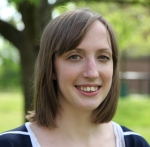Catherine Durose
Diverse, joyful, inspiring and hopeful are not words that I would usually associate with meetings, but they are wholly appropriate to describe my experience of being involved as Co-Chair of Citizens UK: Birmingham’s Commonwealth Games Assembly.
A chapter of a national organisation, Citizens UK: Birmingham is a diverse civil society alliance bringing together over 25 member institutions, including education, community, trade union and faith-based organisations from across the city-region. They are committed to using community organising to generate collective power for social change and convene a series of local campaigns on issues of social justice. In Birmingham’s Town Hall on 7 March 2018, Citizens UK brought together nearly a thousand people from communities across the city to celebrate that Birmingham is now confirmed as the host of the Commonwealth Games in 2022.
Amidst the celebration, Citizens UK sought pledges from the head of the organising committee on a set of citizen’s guarantees to ensure community benefit from the Games. These guarantees focus attention on the once in a lifetime opportunity offered by the Games for a catalyst and a legacy of social change for the city. Citizens UK called for a working relationship to deliver a living wage games with a legacy of opportunity for children and young people from across all our communities in Birmingham, ranging from paid work experience to access to sports facilities to permanently affordable social housing.
The Assembly was a celebratory occasion, full of music, performance and laughter. But it was also an important political event. Assemblies are a form of political theatre, highly choreographed and intending to take the audience on a journey. The songs sung by school choirs, performances from diasporic community groups and the powerful testimony from often least represented voices in our society speaking truth to power about their own lives are all deeply emotional experiences and deliberately so. It is easy to be cynical about politics and democracy, particularly in the current climate, but this event offered an important starting point for a different kind of political conversation.
Assemblies fulfil a series of important political functions. Assemblies are designed to be about political accountability, a public holding to account of those with formal decision-making power, a forging of a relationship beyond the ballot box between voters and those they elected. Assemblies demonstrate a different kind of political power, a power generated by organising and mobilising. Assemblies provide a political education, a new kind of political training ground, inspiring active citizens and forging the political leaders of tomorrow. Assemblies are also about political efficacy, building the hope and belief that not only is social change possible, but showing people that they have an active role to play in achieving it. As a fellow Leader noted at the Assembly; whilst people often think that action comes from hope, it’s the other way round, hope comes from action.
I was at the Assembly as part Citizens UK: Birmingham’s Leadership Group and a member of the Citizens UK National Council, representing the University of Birmingham’s College of Social Sciences, which have been a Principal Partner in this alliance since March 2015. Why would a university be involved in community organising? The answer is that there is a need for universities to be actively engaged with their local communities. We have a role and moreover a responsibility to work locally as well as globally to improve the conditions and opportunities for our local communities.
Community organising also recognises self-interest, being part of this civil society alliance helps us to build capacity for civic engagement in our research, teaching and impact. I was joined on Wednesday by over sixty colleagues and students from the University of Birmingham, ranging from final year students working with Citizens UK on placement as part of their Professional Development module to members of a recent Senior Leader’s cohort who have worked with Citizens UK on a project developing new modes of research access and engagement, to a Professor using community organising to pioneer inclusive business support for minority ethnic entrepreneurs. Civic engagement of this kind is crucial to what we are as a College.
To get involved:
On 6 June, we will be holding the second in our annual CoSS Citizens UK lecture series where Professor Guy Standing (SOAS) will be talking on the subject of universal basic income. The lecture will be followed the next day by a Civic Academy, where civil society leaders will be discussing how to take action on this issue in the city. As a precursor we are screening the film, ‘Free Lunch Society’ on Wednesday 25 April on the University of Birmingham’s campus. If you want to register for any of these events, please email me at [email protected].
 Dr Catherine Durose is a Reader in Policy Sciences at INLOGOV. She undertakes research, teaching and impact work on urban governance and public services, with particular interests in participation, intermediation and co-production. She is part of Citizens UK: Birmingham’s Leadership Group and a member of Citizens UK National Council.
Dr Catherine Durose is a Reader in Policy Sciences at INLOGOV. She undertakes research, teaching and impact work on urban governance and public services, with particular interests in participation, intermediation and co-production. She is part of Citizens UK: Birmingham’s Leadership Group and a member of Citizens UK National Council.




